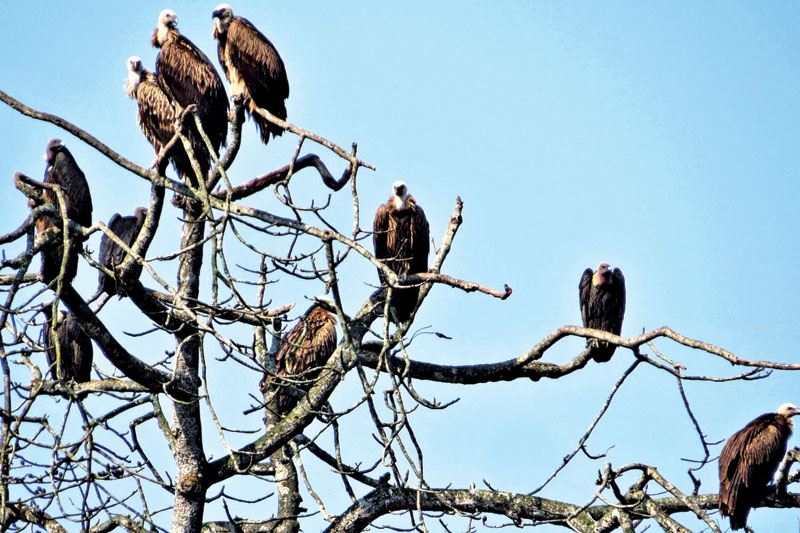Critically endangered white-rumped vulture's number increasing
KATHMANDU: A survey has revealed that the number of critically endangered white-rumped vultures, known as 'Dangar Giddha' in Nepali, is gradually increasing, thanks to measures taken by the government, bird conservationists and other stakeholders.
The survey, which officially began in 2002, found that the number of these scavengers has increased from 68 in 2014 to 111 this year. The drastic fall in the number of this species of vulture also known as 'nature's sweepers' from 205 in 2002 to 55 in 2009 had prompted the conservation action.
A team of vulture conservationists from Bird Conservation Nepal carried out the survey in collaboration with the Department of National Parks and Wildlife Conservation, Nepal with a support received from the Royal Society for the Protection of Birds, UK.
Nepal Government has banned the import of diclofenac since June 6, 2006 and so far declared 56 districts covering 116,430 sq km area as diclofenac-free zones, said BCN's Chief Executive Officer Narendraman Babu Pradhan.
The drug used in the treatment of livestock in Asia at wider level was one of the main reasons for a dramatic fall in the vulture population.Vultures feeding on carcasses of animals treated with this drug suffer kidney failure and die after a few days.
Though the use of diclofenac has been banned in Nepal, India and Pakistan since 2006, its illegal use and the use of other non-steroidal anti- inflammatory drugs like Nimesulide, Ketoprofen, and Aceclofenac are reasons behind the fall in the number of vultures from South Asia.
Nepal is home to nine species of vultures and of them, five species are at higher risk of extinction not only from Nepal but also from the entire world. They are Bearded Vulture (Lammergeier), Egyptian Griffon, Himalayan Griffon, European Griffon, cinereous and red-headed vulture.






